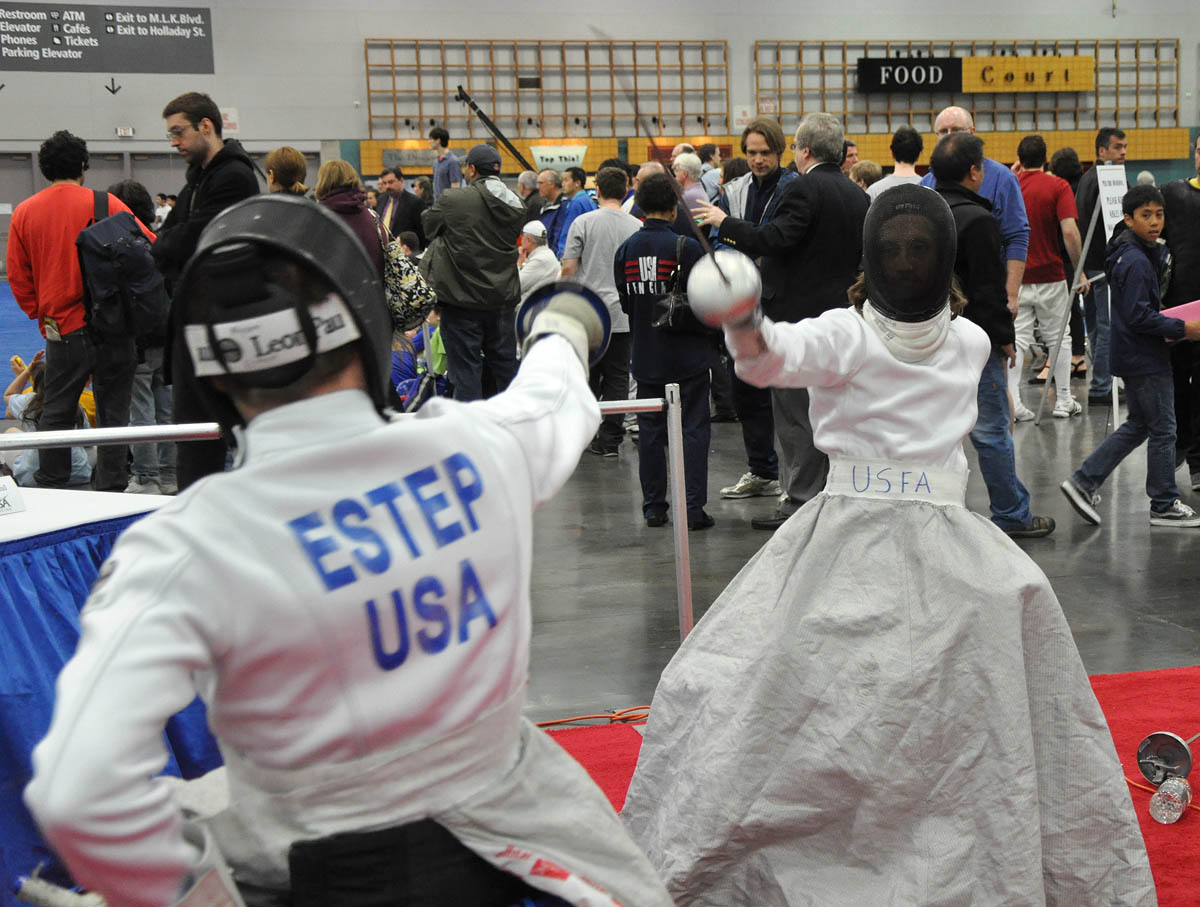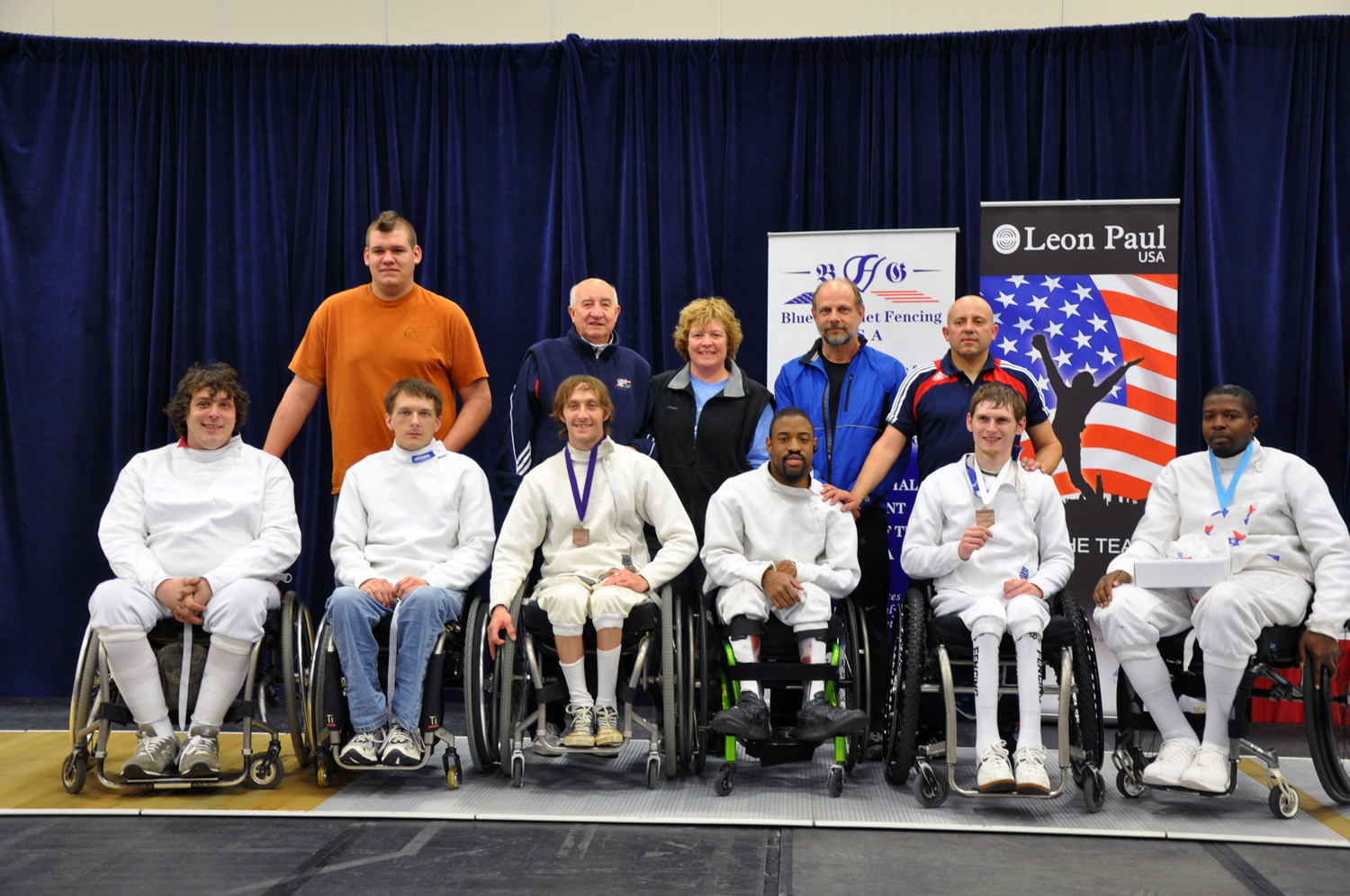Sonia Fogal and Joey Brinson make no bones about their competitive spirits.
Fogal, 42, and a Jackson resident, has played softball and volleyball. Brinson, 33, a Brandon native now living in Okolona, says he’s always liked “different” sports
Neither lost that spirit when separate traffic accidents took away the use of their legs.
Now both athletes are using their competitive drive to become among the best wheelchair fencers in the nation. The pair was recently named to the U.S. National Wheelchair Fencing team, and they have hopes of earning medals in the 2012 Paralympics in London.
Meanwhile, they’re participating in tournaments across the country as members of the Blade Rollers, a wheelchair fencing team begun by Methodist Rehabilitation Center (MRC) in Jackson.
MRC Therapeutic Recreation Director Ginny Boydston -- who now serves as team leader for the U.S. Wheelchair Fencing team -- introduced the sport to Mississippi in July, 2006. The Blade Rollers were formed the next year, and have since grown to be the largest wheelchair fencing team in the United States.
“One reason we’ve been able to expand the program is the support of sponsors like MRC, the Mississippi Paralysis Association, Ameristar Casino Vicksburg and the Craig H. Neilsen Foundation,” Boydston said. “They’ve supplied funding for equipment and travel expenses and supported our efforts to stage free fencing clinics across the state. As a result, we’ve added seven new fencers to our roster for a total of 13 competitors.”
The Blade Rollers fielded a team of eight for the North American Cup tournament in Dallas and brought back 16 medals, including a gold and two bronze medals for Fogal and a bronze medal and a fifth and sixth place finish for Brinson.
Next up is the Dixie Games in Tampa in May, the State Games of Mississippi in Ridgeland in June and then the United States Fencing Association National Championships in Atlanta in July.
In the midst of that schedule, Fogal, Brinson, Boydston and the rest of the national team will travel to Lanato, Italy for the World Cup matches in May. Fogal and Brinson hope that experience will lead to competition in the World Championships in Paris and eventually the Paralympics.
Boydston said Fogal and Brinson are fortunate to live close enough to renowned coach Les Stawicki of Louisville, Ky., to receive some instruction and attract his attention. Stawicki is the coach of the national team.
David Williams of Ridgeland, who coaches the Blade Rollers along with Richard Jones of Clinton, said Fogal and Brinson have what it takes to succeed in the sport. “A lot of their success has to do with their own desire and will to excel,” he said. “They are highly motivated.
“It’s a fighting sport, so they have that aspect. It matches extremely fast action and a lot of mental ability.”
Wheelchair fencing is not much different from its able-bodied cousin. Fencers compete in two of three categories: foil, saber and epee. Points are awarded based on touching an opponent at certain points on the body, which sets off an electric signal. In epee, the target is anything above the waist. Brinson said he likes epee and saber, while Fogal prefers the foil, but is learning saber.
The wheelchairs are clamped into a frame on the ground and are separated by a central bar. The fencer with the shortest arms gets to decide the distance between the fencers.
Brinson said fencing has taught him lessons. “I had to learn to be patient,” he said. “You must practice techniques and do drills.”
Fogal agreed. “It takes dedication and commitment to all the practice,” she said. “I learn something new every time.”
Brinson said he can’t recall details of his first winning bout except that it gave him a big boost in confidence and “let me know I had the ability to be one of the best.”
However, he does recall the 2009 national championships in Dallas. “I had three of my most fun bouts ever in the quarterfinals, semis and final. I had to beat a really experienced fencer,” Brinson said. “The guy I beat in the finals had handed it to me in the pool finals.”
Fogal said she has an advantage in rising to the top of wheelchair fencing because few women compete in the sport. That hasn’t slowed her drive, however, and she regularly practices against men.
The mental side of the sport is vital, Fogal said. “You have to initiate action and be thinking three moves ahead,” she said.
With the World Cup in Italy approaching, both fencers are becoming more focused.
“I want to represent my country as best I can,” Brinson said. “I want to be one of the best fencers in the world. That will take a lot of work and experience.”
“My goal is to make the Paralympics and medal,” Fogal said. “I want to bring back one of those pretty brown medals around my neck.”


